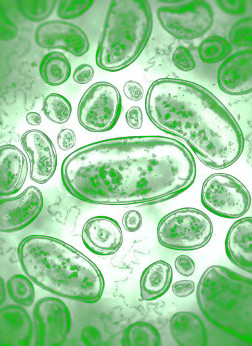'Bladder microbiome' revealed
 Australian researchers have identified a collection of bacteria dubbed the “bladder microbiome”.
Australian researchers have identified a collection of bacteria dubbed the “bladder microbiome”.
A new study paints the most complete picture of the bladder ecosystem yet, and may even help prevent or treat urinary tract infections, according to Samuel Forster, lead author of the study published in Nature.
It is well known that the bladder can harbour bacteria.
“Now, the research is showing bacteria associated with health in the female reproductive tract are also able to colonise the bladder without causing infection,” said Dr Forster.
Dr Forster said the “mini microbiome” of the bladder could help experts understand why some people are more susceptible to UTIs.
The project used genome-sequencing technology to isolate 149 strains of bacteria from the bladders of 77 women.
It revealed that both healthy and disease-causing bacteria can move freely between the bladder and the female reproductive tract.
“This suggests the female bladder is part of an interconnected bacterial community with the female reproductive tract,” Dr Forster said.
Currently, most UTIs are treated with antibiotics, which essentially wipe out bacteria.
“It raises the question: if antibiotics are used to kill the 'bad' bacteria in patients with UTIs, could this also upset the balance of healthy bacteria that have a protective effect, much like in the gut?” Dr Forster said.
“It's not that we shouldn't be using antibiotics, it's just that we should be considering our use of them, and seeing if we can come up with better alternatives that would be preferable in some circumstances.”







 Print
Print